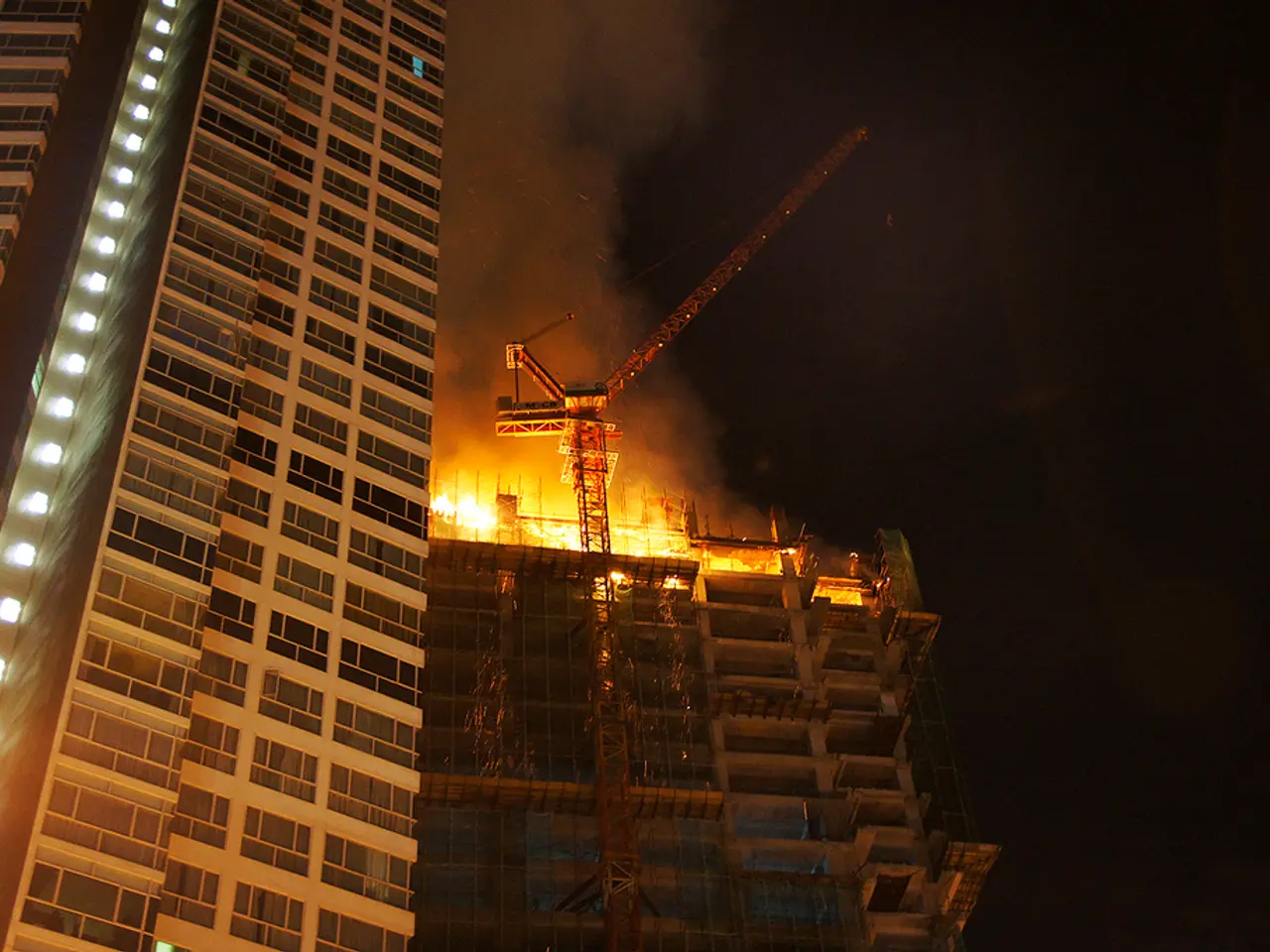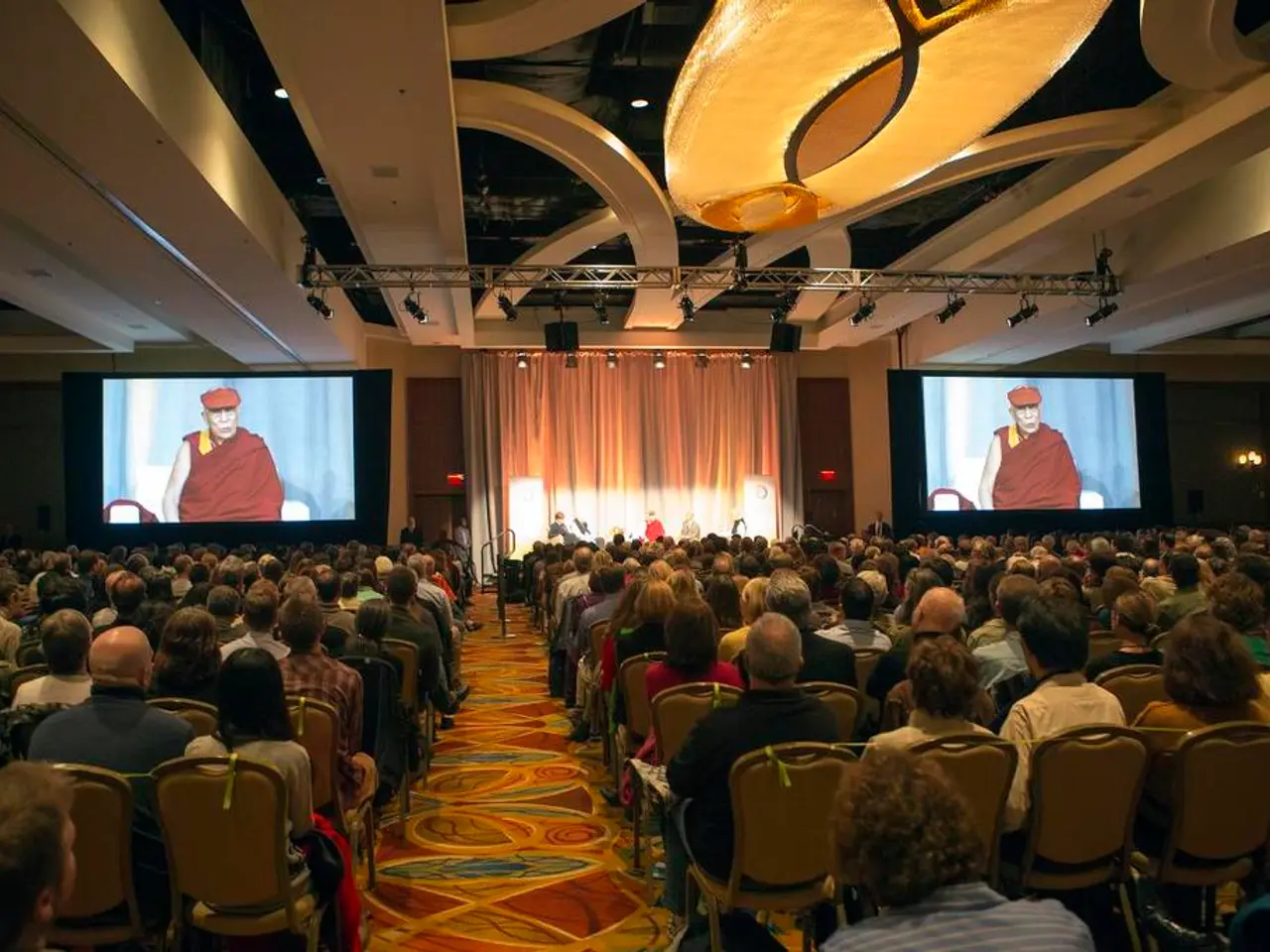Court rulings reveal Commission's negligence under Article 85 (1) of the Treaty, as stated.
In June 2017, the unexpected evacuation of residents from the "Hannibal" high-rise complex in Dortmund made national headlines. The city ordered the immediate evacuation of the building due to fire safety concerns, causing approximately 400 residents to leave their homes within hours.
The oral hearing at the Higher Administrative Court (OVG) in Münster focused on whether the city and fire department were right in considering an immediate danger to the residents' lives. The presiding judge, Jens Saurenhaus, emphasized the uniqueness of the "Hannibal" case, stating that while his senate is familiar with fire safety issues, this case is particularly complex.
The former owner of the "Hannibal" building, who was the owner at the time of the evacuation, filed a lawsuit against the city's decision. The court-appointed expert agreed with the city that the building had fire safety defects but argued that none of the identified defects posed an immediate danger.
One of the identified defects was the non-functional risers for firefighting water. Additionally, the expert denied that residents would have been in danger of death in case of a fire for several other identified defects, including defects in supply shafts and air vents from the underground garage to escape routes.
The responsible parties at the Dortmund fire department reacted with disbelief to the expert's assessment. The city should have addressed the order to the tenants, not the plaintiff, the former owner.
The Administrative Court Gelsenkirchen ruled in favor of the city's decision to ban the use of the building but not the evacuation. The OVG adjourned the hearing after several hours of oral proceedings, and the court will announce the date for the next hearing at a later time.
Currently, the building remains uninhabited, as the renovation work by the new owner is not yet completed. The high-rise complex, consisting of up to 17 floors, is facing eviction due to fire safety defects.
It is important to note that the German building code (Baugesetzbuch – BauGB) does not specify detailed structural requirements for certain types of buildings like elderly homes or care facilities, which are considered "unregulated special buildings" (ungeregelte Sonderbauten). However, this does not directly relate to the specific legal dispute you mentioned.
For the most accurate and up-to-date information, it would be best to consult local news sources or directly contact the Higher Administrative Court in the relevant jurisdiction. The ongoing legal dispute over fire safety defects in the Dortmund high-rise complex is a significant issue, and further developments are expected in the coming months.
The former owner of the "Hannibal" building, who was the owner at the time of the evacuation, has filed a lawsuit against the city's decision, claiming that the court-appointed expert's assessment of the fire safety defects was incorrect. In the ongoing legal dispute, the question of whether investing in real-estate with documented finance for renovations can protect landlords from liability in case of fire safety concerns is yet to be determined.




